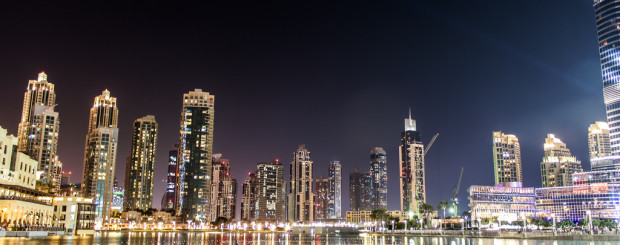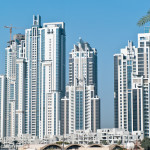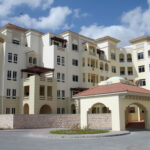Dubai vs Singapore – Cost of Living
When an expatriate relocates to a new country, cost of living is an important consideration in deciding whether the shift will prove to be a good one financially, possibly a good one career-wise, but financially neutral, or one where hidden, unexpected or relatively high costs compared with the homeland consume all the future benefits of the move.
Both Dubai and Singapore are attractive and popular choices for the nomadic expat, ever in search of a better working gig.
Transport
We’ll start by looking at one sector where there are similarities, but where the differences at present, anyway, couldn’t be clearer.
Singapore is an island republic which occupies a space of just slightly more than 700 km2. It’s currently home to about 5.5 million people – that’s 2.5 million more than when I lived there for 3 years in the early 1990s. At that time, there was already much discussion of how a population of around 4 million would impact on infrastructural systems, in particular, the already congested roads of the Central Business District.
Solutions were typically authoritarian, swift and pragmatic. Cars were banned from certain parts of the CBD; taxis had to pay for special exemptions to operate within these areas and the costs were passed on to the customers.
Since that time, cars in general are made extremely expensive for the average salary earner to consider owning by a variety of constantly adjustable taxation and surcharge schemes. Petrol is also expensive and there are laws to prevent Singaporeans from crossing into Malaysia and filling up on considerably cheaper Malaysian petrol.
So lots of reasons – mainly financial – to not own a car. But it isn’t all stick and no carrot. Singapore has worked tirelessly to upgrade public transport systems, to make them affordable and convenient for all. Bus routes and stops are aligned to make rapid changes from the Singapore railway system the MRT, as convenient and swift as possible. This constant fine tuning continues; it’s the Singaporean way.
Dubai has attempted to follow the Singaporean model with electronic road tax for using certain roads and routes, a massive upgrade of public transport, in the form of a very modern, air-conditioned bus fleet, air-conditioned bus-shelters and of course the Dubai Metro.
Lots of carrot, but not much stick. Cars remain very cheap, as is petrol, despite the UAE having considerably more expensive petrol than Saudi Arabia, Qatar, Kuwait and Bahrain.
So there’s very little incentive to leave the car at home and take a bus or a train; the result, major road congestion at certain peak times between Dubai and the northern Emirates of Sharjah, Ajman, Umm Al Quwain, and Ras Al Khaimah, where, as we will see in the next section, the cost of housing in Dubai is pushing people to seek cheaper accommodation. At present, there seem to be no solutions in sight, so the road nightmares will continue.
Housing and Accommodation
This time, Dubai first: during the years between 2008 and late 2013, rents fell in Dubai, as a consequence of the economic slowdown and a fair amount of “expat flight.” To give an example from the bottom end of the accommodation scale, for an apartment I am familiar with, the annual rent fell from AED 84000 (US$ 23000) in 2007 to just AED 35000 ( US 9500) for the years from 2009 to the present. However, it is pretty certain to rise in the next year, but maybe by no more than 10%.
So in Dubai, right now, rents are back up, as is the cost of buying. All this may mean nothing as long as your employing company offers you a decent accommodation allowance, but to get an idea of just what this allowance will give you, best look at rental prices on dubizzle.com in the accommodation section.
You can also check out the cost of buying on this same site. It’s a reasonable option if a) you plan to be here for a few years and b) you happen to know that the market is quite flat at the time of buying. That was certainly true at the start of 2013, but right now? Caveat emptor!
Accommodation is also your single biggest cost in Singapore. You should probably expect to see 25% of your monthly salary go in housing costs.
If a couple are working, then this proportion of monthly income would reduce to 10-12% of joint salaries. Again, as with Dubai, do your research carefully into costs and your legal rights if the landlord suddenly announces a major increase in annual rent. You could begin your research into Singaporean housing costs here.
As you will see, monthly rental rates vary considerably, as do locations. If you fancy living in a $6000 per month apartment, expect something pretty decent, with very good facilities, but also expect that you need to be earning $24000 a month for this to be a realistic accommodation option for you. There are plenty of cheaper options just not centrally located. But transport is always at hand.
Health
If you are going to be ill somewhere on the planet, you could do a lot worse than Singapore. The WHO consistently ranks Singapore’s health system very highly and in 2013, Bloomberg rated Singapore’s health system as the most efficient in the world.
So while all this is very good news, unless you are a Singaporean citizen, or a Permanent Resident, you have to pay to use these facilities – even though you may well be paying the same rates of tax, or even more than the two above groups of people.
Most expat workers in Singapore will be provided with a Health Insurance Scheme by their employer, but check carefully just what this entails. Do you get 100% coverage everywhere, or is it a joint co-pay arrangement, where a sum is deducted from your monthly salary as your contribution to your health needs. Check also just what your health insurance scheme will cover and what it will not.
Internationally recognised Health Insurers such as BUPA, AXA, Aetna Life and others all have branches in Singapore, so you can consult with them on likely plans to cover your medical needs.
Dubai also has very good healthcare facilities, particularly since the establishment of Dubai Healthcare City over the last 5-6 years. This cluster of hospitals and clinics in Bur Dubai, between the Al Garhood Bridge and the Dubai Creek has attracted top medical professionals from all over the globe as Dubai aims to establish itself as the major healthcare hub for the Middle East.
The newer and better the facility or hospital, the higher the costs tend to be, so again, most expat workers will receive membership of a health insurance scheme as part of their employment package. But again, read carefully what you do receive as coverage and what you don’t. Most employment medical insurance packages do not, as a case in point, cover the costs of maternity, which can be quite substantial even for a normal birth. I have also heard of some insurance providers employing rather dubious interpretations of vaguely worded Exclusion (i.e. not covered) Clauses in order to not pay out contributors’ medical claims.
Word of mouth helps to discover the good providers and to uncover the not so good ones;
Education
Like the healthcare sector above, Dubai has a bewildering variety of schools, colleges and universities available to parents of school and college-aged children. One thing is constant: these are UAE Government supervised, but not UAE Government run. The Government schools are open only to UAE nationals and are free. All the rest charge fees.
Some charge very modest fees, as the parents earn very modest incomes. A large percentage of the Indian,Pakistani, Iranian and Arabic schools fall into this category. These schools also offer national curriculum courses, not surprisingly. So too do the much more expensive British, American, French and other so-named schools.
At best, your children will emerge with an internationally recognised and benchmarked qualification, such as International Baccalaureate, British GCE, O and A Levels, and American Curriculum High School Diplomas.
All this comes at a cost: in 2014, for example, the cost for a year 12 student at the highly rated King’s School, Dubai is AED 100,300. That’s $US 27,000 for one child for one year. If you have school-aged children, or children who will start school during your time in Dubai, you need to bear these very substantial costs in mind when negotiating a salary package with your employers.
Singapore has an excellent public education system, and unlike Dubai, it is possible for expatriate parents to enrol their children in public schools. Not many do it, but it is possible, and if you read this article, some parents see very positive benefits coming from this. If you are successful in enrolling your children in a local school, fees are negligible; Singapore does not distinguish between what it charges its own citizens and expat parents.
Most, though, opt to send their children to International Schools, which like their Dubai cousin-institutions, offers international qualifications. Like Dubai, the fees are also high, ranging between $25000 – 40000 (Singapore), depending on the school and the year of study.
Day-to Day Costs
Other costs, like the food you eat on a daily basis, occasional dining-out, clothing and the like may not be as cheap in either Dubai or Singapore compared with the UK, the USA and other expat home locations as they once were. They are probably no more expensive, but the gap has narrowed.
In the case of Dubai, remember that you aren’t paying tax on your income, so even if your supermarket bills is about the same as your UK supermarket bill, you probably have around 30% more disposable income that isn’t going into government coffers.
Tax on personal income starts very low in Singapore, but the expat earner (and taxpayer) is likely to be in the top bracket of around 28% of gross income. I’m not a taxation expert, but I suspect that this compares pretty favourably with home country tax rates. Either you are paying less tax, or paying about the same tax, but earning considerably more. You probably wouldn’t be in either country if there wasn’t a pretty persuasive financial advantage from being so.








